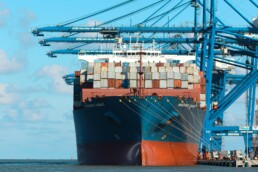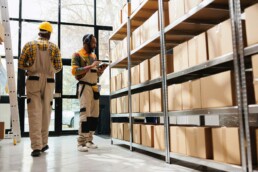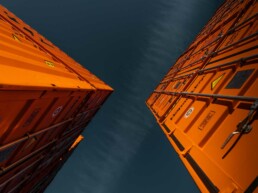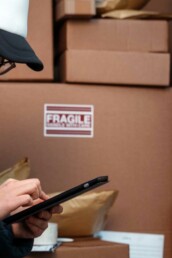3PL vs 2PL – Which Fulfillment Partner is Best?
If you are a growing e-commerce business that has been handling your fulfillment needs in-house, you may be considering how to scale effectively. Understanding your requirements, time constraints, and growth trajectory is crucial in deciding whether a 2PL or a 3PL is more suitable for your business. The ideal fulfillment partner will align with the needs of your business and your customers. In this article, we will define and outline the advantages and disadvantages of using a 2PL versus a 3PL partner. Ultimately, which fulfillment partner is optimal for your e-commerce venture?

What is a 2PL
2PLs, known as second-party logistics providers, are asset-based carriers responsible for transportation methods. This category encompasses shipping lines, air freight providers, and van lines, among others. Essentially, 2PLs own the transportation assets responsible for product delivery. In other words, they include airlines, sea-faring cargo ships, and rail transport companies contracted for delivery services. Often referred to as “forwarders,” they primarily control one leg of the transportation journey. The extent of their involvement in the delivery process varies depending on the company and its resources. For instance, larger shipping lines like Maersk mainly handle large, heavy, or wholesale deliveries. On the other hand, global 2PLs like FedEx can manage larger shipments and everything in between.
Pros
- They provide lower overhead than shipping the product(s) yourself.
- They offer simple contracts
- It is easy to track goods
- You have the freedom to choose the mode of transportation
Cons
- Provides a basic level of delivery
- Harder to scale
- Relationship is transactional
- Is not invested in your e-commerce success

What is a 3PL
3PLs, or third-party logistics providers, are organizations specializing in integrated fulfillment. E-commerce businesses often opt to outsource their supply chain and order fulfillment through these entities. 3PLs offer a range of services, including warehousing, receiving, storage, and shipping. Additionally, some 3PL companies offer value-added services such as inventory management, kitting, assembly, and custom packaging options. E-commerce as an industry and been growing steadily over the past decade and so has the rise in 3PLs. In fact, most fortune 500 (86%) and 100 (96%) companies use a 3PL fulfillment partner. Here are a few reasons why.
Pros:
- They help simplify the fulfillment process
- Faster delivery, fewer mistakes
- Greater scalability
- Relatively low capital investment required
- Save money and time in the long run
Cons:
- You give up more control of the supply chain and fulfillment process
- Businesses can become dependent on their 3PL partners
- Higher upfront costs initially
Opting for a 3PL over a 2PL offers several distinct advantages for growing e-commerce businesses. With a 3PL, businesses can simplify their fulfillment process and enjoy faster delivery with fewer mistakes. The scalability provided by 3PLs is crucial for accommodating business growth efficiently, while the relatively low capital investment required makes it a cost-effective solution in the long run. Despite some drawbacks such as giving up control of the supply chain and facing higher upfront costs initially, the benefits of using a 3PL, including time and money savings, often outweigh these concerns. Moreover, the widespread adoption of 3PLs by both Fortune 500 and Fortune 100 companies underscores their effectiveness in meeting the evolving needs of modern e-commerce ventures.
Beginner’s Guide to Third-Party Logistics (3PL)
The world of e-commerce is always changing, therefore understanding the roll of Third-Party Logistics is integral to keeping up. In light of this our beginner’s guide to third-party logistics (3PL) will delve into the essential aspects, offering insights into fulfillment services, warehousing, and much more.
Read More…
If you are a growing e-commerce business, you may find yourself at the growth apex, where managing logistics has become a part-time gig. However, it might be time to consider outsourcing your fulfillment to an expert. Falcon Fulfillment specializes in high-volume e-commerce fulfillment. From receiving to final delivery, we can help refine your supply chain process and create a workflow that will alleviate time constraints. Moreover, this approach will still provide you with the insights necessary to grow your business your way.





